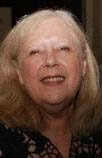
We’ve always colored eggs for Easter, and of course the mythical bunny left a brimming basket of chocolates and filled plastic eggs for our daughters every year. My family says I’ll make a holiday at the drop of a hat, and I figure that has to do with my German-speaking ancestors who came from Switzerland, according to our family historian. Many customs I grew up with reach to a distant time and were handed down by way of oral histories as well as histories recorded in a family Bible that dates to the 1700s.
My daughters often asked where the Easter bunny came from, and I always told them he was magic so he came from a magical place no one knows. But the History channel offers an explanation dating to the Anglo-Saxon Teutonic goddess of spring and fertility, Eastre, who was often depicted with a hare or rabbit. The channel credits German settlers for the holiday bunny. These settlers brought to America the myth of "Oschter Haws" who hopped around on Easter Eve leaving colored eggs for children.
Christians celebrate the resurrection of Christ on Easter; ancient tribes celebrated similarly, marking the season of rebirth after a long cold winter. One of the most profound moments in my family’s Easter occurs when we attend Tenebrae on Good Friday. This is a somber service, with the church gradually fading to darkness. The altar is stripped, and the Holy Book is slammed shut. Members depart in silence. It is a service that above all others leads to an examination of the self and the soul. It is in sharp contrast to Easter Sunday when the theme is celebratory and members greet one another by saying, “The Lord is risen.” Those greeted respond, “He is risen, indeed.”
My faith is a blend of customs that date to pre-Christian times and customs that were born during our Catholic influenced period before the Reformation. I often tell others we Lutherans are renegade Catholics, but we are also renegade pagans. And of course, both Christians and Muslims can thank Jews for getting us going in the first place.
What’s important I think is that we continue our traditions, sharing oral history with our children, so that we are able to keep on going, hopefully to bring light into the world rather than darkness.



No comments:
Post a Comment